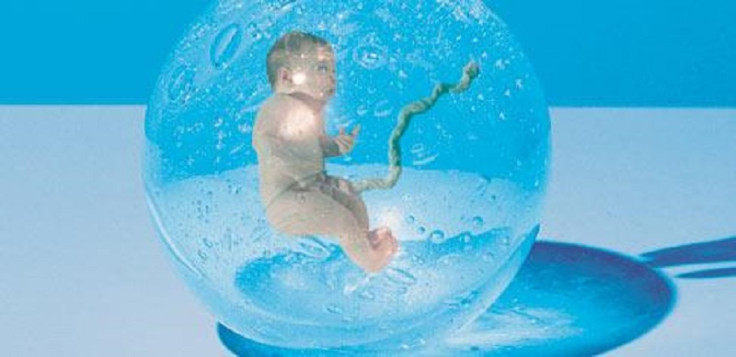Ectogenesis: Will Artificial Wombs Help Men Fight the Child Custody War?

You may well have read about the ongoing development of an artificial uterus for gestating mammalian life, human and not just animal, outside a female's body. Several titles have covered it; one of the most popular articles, in the Daily Beast, expressed concern about what artificial wombs could mean for today's feminists.
It's a bit hard to sympathise.
For a woman, having children without including their father in the equation post-conception has several routes. Artificial insemination is one, but the less expensive routes can still be pursued: have sex with a man/men "casually" and tell them they needn't use condoms because she's using birth control and STDs aren't a concern based on her last visit to the doctor. A less astute man may believe her and become a father without ever knowing it. For financing, she can file for "public assistance", or pursue a child support order, assuming she is ready to tell the father that he is one.
Men have no such options. If a woman with a child is married to the father, there's always no-fault divorce and the high likelihood she'll get custody (with child support) and possibly alimony, either indefinitely or at least for some time. Wilful paternity fraud is possible, especially in places where men have no right to a paternity test or if actual paternity becomes irrelevant after some time period. Several options for her, but not for him.
So unsurprisingly, ectogenesis appeals to men seeking a safer path to parenthood. But before concluding this, consider a few things.
An artificial uterus is a device, not a right. As long as women can still do to men what has been described above and men's recourse is either limited or non-existent, men's rights in this area remain unchanged. Ectogenesis does not provide men the right to a "paper abortion", a legal right to renounce parental rights (such as they are) and obligations (a lot of those) within a given time after a man is named the father by the mother or the state, as does women's option to abort. Not much changes for men, rights-wise, with ectogenesis.
An artificial uterus is a device, not a right.
Secondly, it isn't known how courts will handle parental rights around ectogenic children. Like the genetic mothers of children born of surrogates, will children remain the legal progeny of the genetic mothers? If so, will privacy contracts signed by donors and egg brokers prevail, should donors later seek to discover where their offspring are? Courts have consistently upheld the rights of mothers to gain custody of/access to their children, but not of fathers. As long as the need for human eggs are a factor, egg donors may still be able to create problems for the buyers/brokers of them.
Thirdly, there's a bigger picture that could directly and adversely affect men's rights. While not an immediate concern after ectogenesis becomes available, if a government were to decide it needed an army with superior intelligence, strength, and stamina, but who were also easily managed, obedient, undistracted by emotional or sexual needs, and fearless, it would doubtlessly start with a man's genome and then splice in/out various traits.
With legal rulings already in place allowing entities the right to patent genetically modified organisms, it doesn't take much to see where things can go when cloning and ectogenesis are mixed. In the history of slavery, the great bulk of people forced into slavery have been men, not women. Men's rights would clearly not be served in such a scenario.
Men's rights activists and others have asserted that children are better off having both parents raise them, presuming both are fit. If so, then children gestated ectogenically would be as much at a disadvantage if raised solely by dad as solely by mum, correct? MRAs, like feminists or anyone else, can't have it both ways. One's position must be consistent or it loses credibility.
The only way to see how this all plays out is to first see ectogenesis become a reliable methodology, then see how the courts handle it. But humanity's gone from one to over 7 billion individuals in just over 200 years. Just how badly does it need ectogenic reproduction added to in utero reproduction? About as badly as fish need bicycles.
Matt Campbell writes for Men's Activism, a website which tracks news and information about men's issues from around the world, and promotes activism in support of men's rights and equality.
For more information on Men's Activism, go to the website by clicking on the following link.
© Copyright IBTimes 2025. All rights reserved.





















